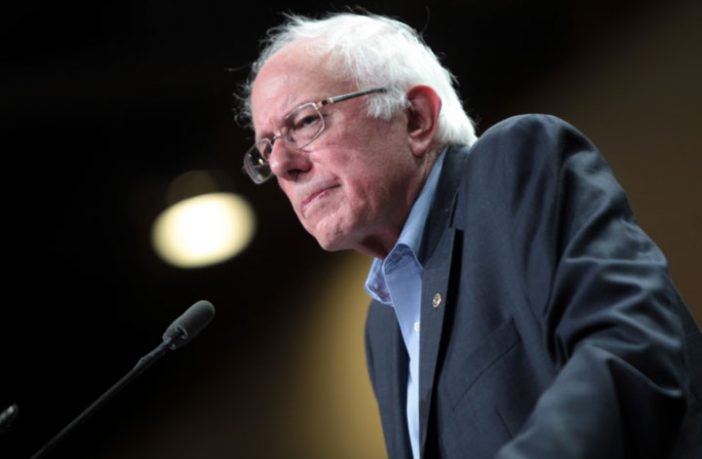Bernie Sanders gave an interview to Vox published July 28th describing himself as a “democratic socialist” and detailing what that means in contemporary American politics. Among the topics he discusses is immigration. Below is the exchange:
Ezra Klein: You said being a democratic socialist means a more international view. I think if you take global poverty that seriously, it leads you to conclusions that in the US are considered out of political bounds. Things like sharply raising the level of immigration we permit, even up to a level of open borders. About sharply increasing…
Bernie Sanders: Open borders? No, that’s a Koch brothers proposal.
Ezra Klein: Really?
Bernie Sanders: Of course. That’s a right-wing proposal, which says essentially there is no United States….It would make everybody in America poorer —you’re doing away with the concept of a nation state, and I don’t think there’s any country in the world that believes in that. If you believe in a nation state or in a country called the United States or UK or Denmark or any other country, you have an obligation in my view to do everything we can to help poor people. What right-wing people in this country would love is an open-border policy. Bring in all kinds of people, work for $2 or $3 an hour, that would be great for them. I don’t believe in that. I think we have to raise wages in this country, I think we have to do everything we can to create millions of jobs.
You know what youth unemployment is in the United States of America today? If you’re a white high school graduate, it’s 33 percent, Hispanic 36 percent, African American 51 percent. You think we should open the borders and bring in a lot of low-wage workers, or do you think maybe we should try to get jobs for those kids?
I think from a moral responsibility we’ve got to work with the rest of the industrialized world to address the problems of international poverty, but you don’t do that by making people in this country even poorer.
Ezra Klein: Then what are the responsibilities that we have? Someone who is poor by US standards is quite well off by, say, Malaysian standards, so if the calculation goes so easily to the benefit of the person in the US, how do we think about that responsibility?
We have a nation-state structure. I agree on that. But philosophically, the question is how do you weight it? How do you think about what the foreign aid budget should be? How do you think about poverty abroad?
Bernie Sanders: …What you do is understand there’s been a huge redistribution of wealth in the last 30 years from the middle class to the top tenth of 1 percent. The other thing that you understand globally is a horrendous imbalance in terms of wealth in the world. As I mentioned earlier, the top 1 percent will own more than the bottom 99 percent in a year or so. That’s absurd. That takes you to programs like the IMF and so forth and so on.
But I think what we need to be doing as a global economy is making sure that people in poor countries have decent-paying jobs, have education, have health care, have nutrition for their people. That is a moral responsibility, but you don’t do that, as some would suggest, by lowering the standard of American workers, which has already gone down very significantly.
While the commitment to open borders is far from a “right-wing proposal,” being endorsed as it is by the sitting President and leading members of the Democratic Party, Sanders does get a lot of things right. Sanders has often been called a populist, usually in connection with Donald Trump and usually as a pejorative by those who want increases in immigration. But maybe Sanders (and Trump in his own inimitable way) is popular with voters because he speaks to their concerns, including their opposition to increases in legal immigration. A better way to look at the positions of politicians when it comes to immigration policy isn’t to label them far-right or far-left, but to determine whether they are based on the premise that immigration should broadly benefit the American people.




